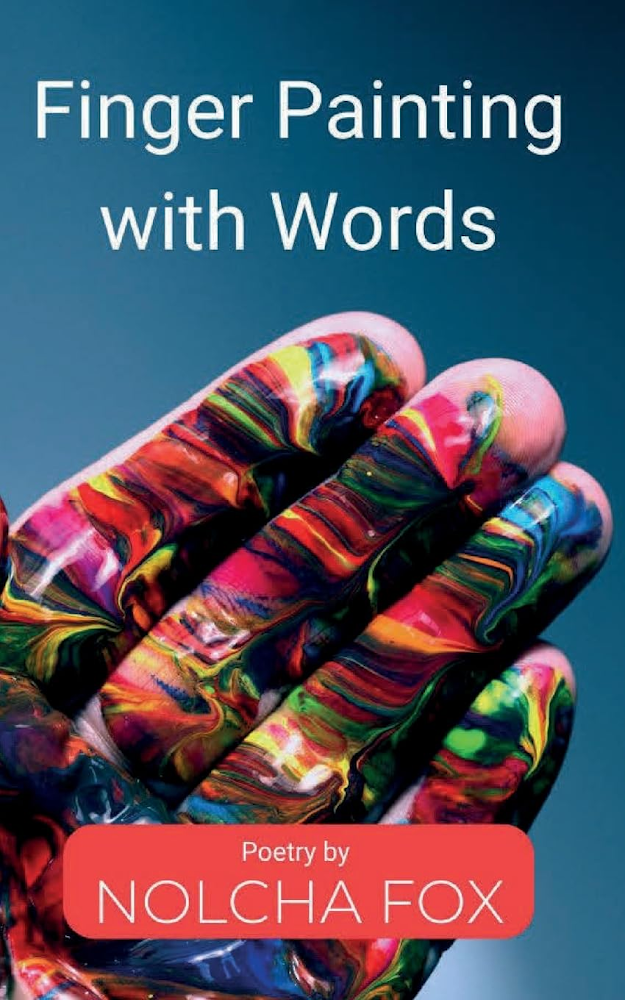
The care taken in the making of these poems is obvious. Lyrical, vivid, imaginative, ultimately they are inclusive, so personal as to be impersonal, universal, speaking to and of all of us. What’s important to the poet is important to her reader. She knows how to listen. Fox does what all good poets do, and the distinctive thing that sets her apart is her voice—vulnerable, empathetic, celebratory—which reflects her personality. Speaker and reader are linked in the collection’s first poem, which evokes birth, and death—the umbilical cord is a link between two lives.
A bridge of
braided hair and bone,
placenta plundered,
mothered, daughtered,
umbilical umbrellaed,
connecting us through time
and space.
Vulnerability begins the moment the cord is cut and a person is alone, but alone together: I am here and so are you, but not forever. This is evident in other poems. In “An Instant” the speaker says, “Cup this instant between your palms, make it a prayer.” The prayer is a celebration. “Another dead letter “ is celebratory in its beginning, “not what’s lost,” which emphasizes what’s found; also vulnerable, with the word fail right at the center. What is found is not all success but some failure, suggesting a person cannot have one without the other.
People are subject to heartbreak and angst. In “Happiness is a tree,” the tree “we planted” has roots that “dig deep in sleepless nights and bad choices.” Here again, celebration, in the title’s beginning, is also in the acknowledgement of ownership. There’s vulnerability with humor in the word play of “decomposing, composting” in a poem titled “Ripening.”
Empathy abounds. Life is not only what we know, but what we don’t know. It’s “the world transformed to what I cannot grasp”, the speaker concludes after rendering line after line of sensuous imagery. There is that mystery of what is beyond her grasp. And ours. Yet there’s the declaration, “I unwrapped death, that wrapped me.” “We are one beached whale” subject as we are to accident, illness, loss, also happiness. Contentment is rendered in the personification of wind and streetlights in a café scene. Another poem, “Catch Them” (note the imperative) consists of metaphors for creativity: stars are fireflies, a sidewalk is an oven top, and each second is a butterfly, as the poet stands with her “net of tangled words,” to which she will give shape. We have within us the power to create. In that, we are the same, vulnerable, capable of empathy and capable of creativity; but we are also different.
The poet celebrates our differences in “Noon,” with fresh, imaginative, and diverse couplets. The poem begins, “Noon is a wreck of sunlight/ afloat on receding shadows” and ends “Noon is a memory of flying/ in the eyelids of dusk.” That last line suggests the surreal and all four lines a certain etherealness, but this poem and all these poems have concrete, sensual imagery. In the middle of “Noon”, the poet states, “Noon is a disco dance/ on a burner set to high.” If a person touches it, they might get burned. Its presence is felt.
Our presence is felt in the poem “Static Electricity,” which personifies the day. In “Veiled,” set at a wedding, a not unhealthy tension is established between what must be perfect versus what is perfect. We are the same and we are different; that even applies to married couples, as in “What He Gets.” Flowers, chocolates, and tears make their appearance, as do the lovers. By the last two lines, he is absent, and ironically we learn that “He would say goodbye/ but he is already gone.” His presence, like hers had been so vivid.
Presence, absence, good, evil, birth, and death take shape in poems crafted in the poet’s shop of words. There’s a solidity, a concreteness to them. They are as imaginative as they are original. It’s interesting that “Instant,” the second poem, is similar in its effervescence to the last poem, “Why I Can’t Write This Poem.” (The irony is she can and does write it.) Its diverse metaphors: Words are “skirts that swirl, a breath I hold, ice crystals that melt, raindrops” are brought together, hammered into one memorable utterance by a poet whose silences are as meaningful as her sounds.
Nolcha’s book is available on Amazon.
42 pages
ISBN 979-8985133288
Garden of Neuro Institute Publishing
Copyright © 2024 Peter Mladinic
All Rights Reserved

Peter Mladinic was born and raised in New Jersey. He graduated from the University of Minnesota in 1973 and earned an MFA in Creative Writing at the University of Arkansas in 1985. Professor emeritus at New Mexico Junior College, where he was a member of the English faculty for 30 years. During that time, he was a board member of the Lea County Museum and president of the Lea County Humane Society. An animal rights advocate, he lives in Hobbs, New Mexico, USA.
Submit to MasticadoresUSA and subscribe for more great reads!

HI Barbara, thank you for sharing this wonderful review of Nolcha Fox’s poetry book. It has a beautiful cover and eye catching title.
LikeLiked by 1 person
My pleasure! I love supporting authors!
LikeLiked by 1 person
Pete, thank you for submitting this great review of Nolcha’s new book! Nolcha, congratulations!🍾🎉🎈🎊
LikeLike
Congratulations, Nolcha! Love the title and the cover 🎉
What a lovely review by Peter.
Thanks for sharing, Barbara.
LikeLiked by 1 person
What a lovely and introspective review. I just love this and I too love the cover. The poems chosen to write about are stunning and it is always a gift to hear what someone thinks of your writing and especially when it is a book. An enormous congratulations Nolcha and thank you Barbara for this post. Big hugs, Joni
LikeLiked by 1 person
Wonderful review!
LikeLiked by 1 person